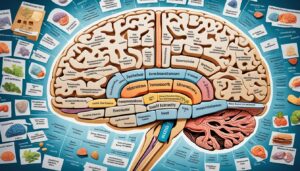According to a study published in the Journal of Clinical Endocrinology & Metabolism, eating dinner later in the night can lead to weight gain and increase your risk of developing heart disease, stroke, or diabetes.

Researchers examined 20 healthy volunteers to determine how they metabolize meals at 10 p.m. versus 6 p.m. Participants went to bed at 11:59 p.m. The researchers discovered that blood sugar levels were higher for those who had eaten the later dinners, even though the same meal was consumed on a different day.
The average peak blood sugar was 18% higher and the overnight fat burnt by 10% less than the previous dinner. In previous studies, chronically high blood sugar levels were linked to diabetes and cardiovascular problems. This is because it can cause inflammation and damage vascular muscle cells.
Late night eating habits can have a negative effect on your health and body weight. The University of Pennsylvania’s Perelman School of Medical Research found that late-night eating can have a number of negative health consequences. Weight gain has been linked to late-night eating. Stress, eating unhealthy fats throughout the day, and eating too little during the day are all factors that can lead to you eating late at night. Eating late at night can cause many health problems, including an increase in blood sugar, heart disease, obesity, and acidity. The bottom line is that eating later can make it harder for your body to go to sleep. This can have negative effects on your memory and productivity the next day.
Here’s why you should avoid eating late at night

1. It is difficult to lose weight :- Weight gain is the most disappointing aspect of late-night dinners. Surprisingly, you can gain or lose weight. Lose weight Not only does it depend on your food choices and caloric intake, but also on the time of your meals. When it comes to eating at night, “A calorie just a calorie” might not be true. These calories will be stored in fat more often if you eat late at night, which can lead to weight gain.
2. Low concentration and memory:Not only does it affect your waistline, but your brain health as well. The timing of meals can have profound effects on brain physiology, behaviour, and mood. Unsane eating habits can affect the circadian system which, in turn, affects brain ability to learn, concentrate and memory.
3. Acid reflux :- Heart disease risk can be increased by eating before bedtime. Acidity Pain in the middle of your chest, or nighttime acid reflux. If your stomach is having trouble digesting food, and you are lying in bed, it can cause the Lower Esophageal sphincter (LES) to relax. This allows stomach acids and undigested food to travel up the esophageal lining. To prevent nighttime reflux, it is best to allow at least two hours between eating and sleeping.
4.Eating disorders :- There could be a problem if you are constantly hungry for bedtime snacks, or if this is the case frequently. NES, or Night Eating Syndrome, is a condition that causes repetitive night-time eating and a lack of hunger. This Night Eating Syndrome (NES), according to studies, has been linked with eating disorders such as binge eating.
Here are some ways to avoid eating too late at night.
- You shouldn’t restrict your night-time calories. You can eat a balanced meal that includes proteins, carbohydrates, and fats. However, it is best to eat before eight p.m.
- Avoid junk food at night
- Stress can lead to a craving for comfort food. It is important to be calm before you go to bed.
- You might feel hungry if you eat an earlier dinner. Healthy snacks such as nuts and apples can help you avoid this.




